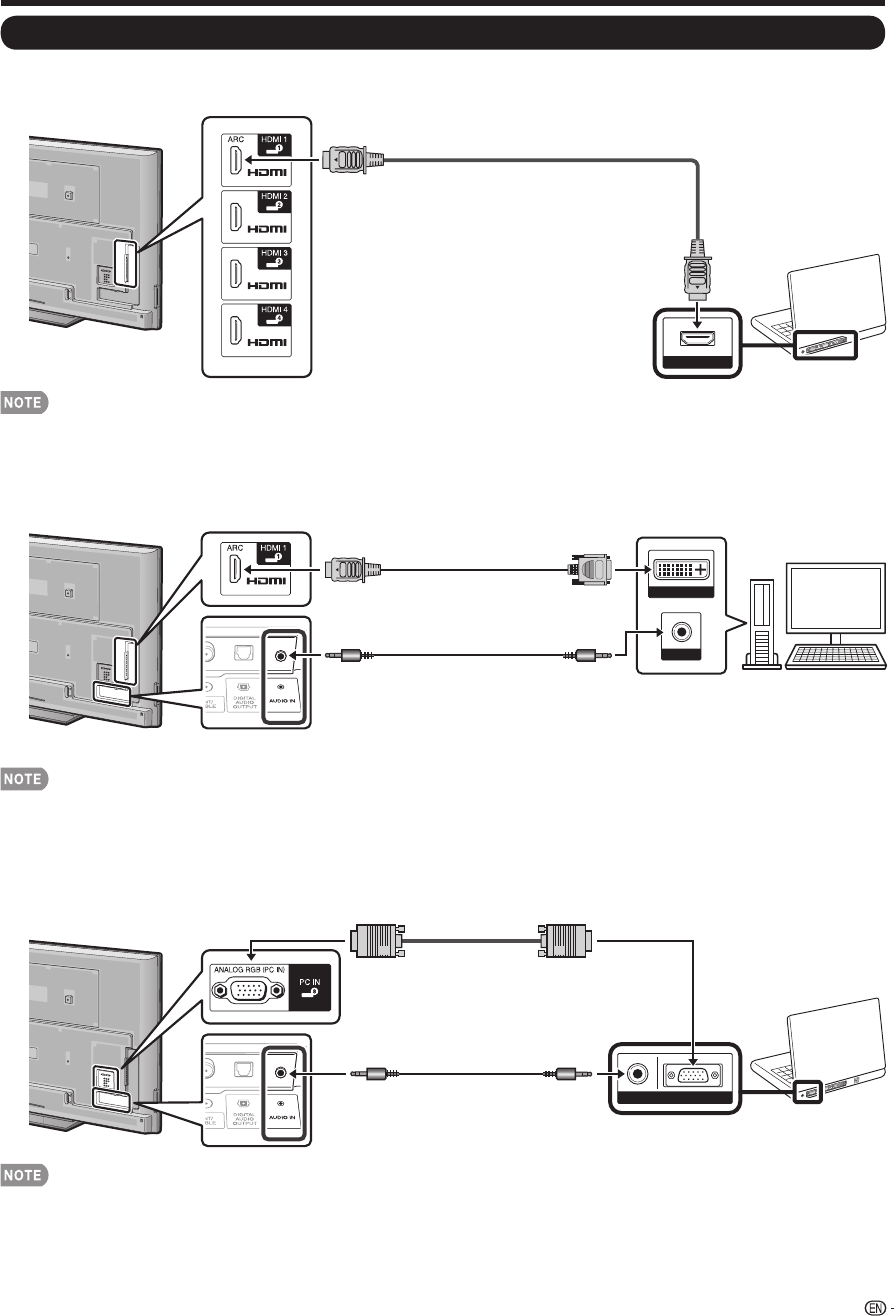Operating instructions
Table Of Contents
- IMPORTANT INFORMATION
- DEAR SHARP CUSTOMER
- IMPORTANT SAFETY INSTRUCTIONS
- Contents
- Supplied Accessories
- QUICK REFERENCE
- Preparation
- Part Names
- Introduction to Connections
- Connecting to External Equipment
- Watching TV
- Direct Button Operation
- On-Screen Display Menu
- Enjoying Photo/Music/Video Playback
- Other Viewing Options
- Using AQUOS LINK
- Using a PC
- Using the Internet
- Appendix
- Trademarks
- Specifications
- Information on the Software License for This Product
- Calling for Service
- LIMITED WARRANTY

17
Connecting a PC
Refer to page 57 for a list of PC signals compatible with the TV.
■
When using HDMI cable (HDMI 1, 2, 3 or 4):
HDMI OUT
HDMI-certified cable
• Depending on the board, only video signals may be output. In this case, in addition to connecting an HDMI-certifi ed cable
to the HDMI 1 terminal, connect a Ø 3.5 mm stereo minijack cable to the AUDIO IN terminal and set "Audio Select" to
"HDMI+Analog". (See page 57.)
•
The HDMI terminals only support digital signal.
■
When using DVI-HDMI conversion cable (HDMI 1):
DVI OUT
AUDIO
DVI-HDMI conversion cable
Ø 3.5 mm stereo minijack cable
• When using a DVI-HDMI conversion cable, you should make an analog audio connection. In this case, in addition to
connecting a DVI-HDMI conversion cable to the HDMI 1 terminal, connect
a Ø 3.5 mm stereo minijack cable
to the AUDIO IN
terminal and set "Audio Select" to "HDMI+Analog". (See page 57.)
■
When using analog RGB cable (PC IN):
Ø 3.5 mm stereo minijack cable
RGBAUDIO
Analog RGB cable
(D-sub 15-pin cable or VGA cable)
• When using an analog RGB cable, input the audio signal to the AUDIO IN terminal of PC IN.
• When connecting a PC to the PC IN, set "Audio Select" to "Video+Audio". (See page 57.)
Connecting to External Equipment
LC-80LE632U_E.indb 17LC-80LE632U_E.indb 17 2011/08/15 15:50:572011/08/15 15:50:57










